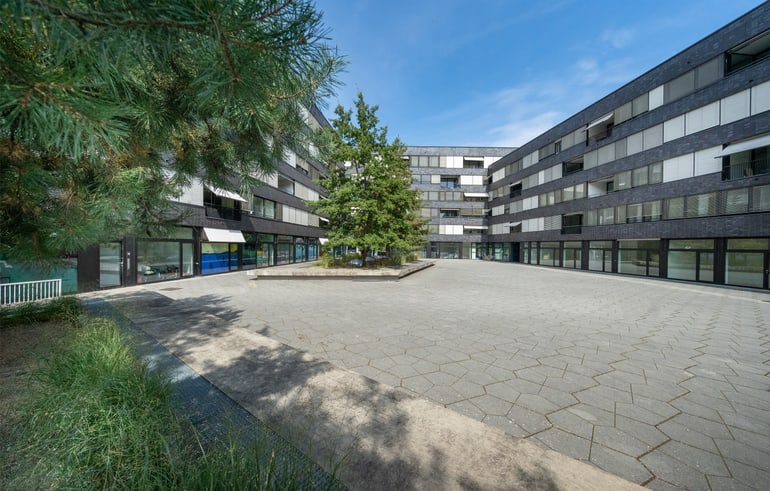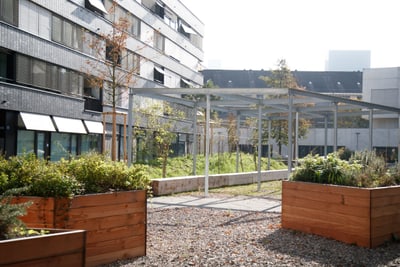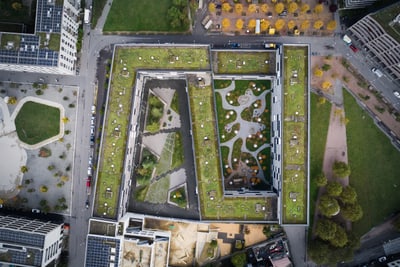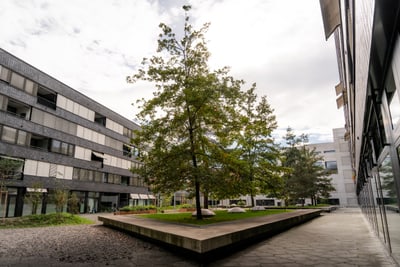With its dark façades and paving slabs, minimal airflow, shortage of plants and lack of shade, it’s no surprise that the inner courtyard of the Erlentor development was reckoned to be the hottest place in Basel. The sealed surfaces exacerbated the “heat island” effect, whereby urban areas record significantly higher temperatures than rural regions. In an era of climate change, this is becoming increasingly problematic.

Mehr Grün, mehr Sichtschutz, mehr Sitzgelegenheiten
More greenery, more privacy and more seating
PUBLICA, the building’s owner, resolved to do something about it, and commissioned the landscape architects Hofmann to upgrade the inner courtyard. New pathways featuring compacted marl surfaces were created, along with green areas. The pathways are still wide enough to be accessible. They were made using the existing pentagonal concrete slabs and blend with the newly laid out green areas to create a harmonious whole. The naturally planted areas absorb some of the heat and also some of the water during heavy rains.
There are now
- communal areas with tables and seating that all tenants can use,
- a pergola, which will be progressively covered by native plants, and
- free-standing, raised beds that tenants can plant themselves.
Some of the newly greened areas have been elevated above the level of the paths to provide privacy to the ground-floor tenants.
Results visible from next summer
Work was completed in late summer 2024, so tenants will have to wait until summer this year to find out just how much the new greenery cools things down. At peak temperatures, the difference is estimated to be between 1.5 and 2°C.
Bemerkbar ab nächstem Sommer
Die Arbeiten sind im Spätsommer 2024 fertig geworden. Wie kühlend die neue Begrünung wirkt, werden die Mieterinnen und Mieter also ab nächstem Sommer richtig bemerken. Der Unterschied wird bei Höchsttemperaturen schätzungsweise 1,5 bis 2 Grad betragen.



